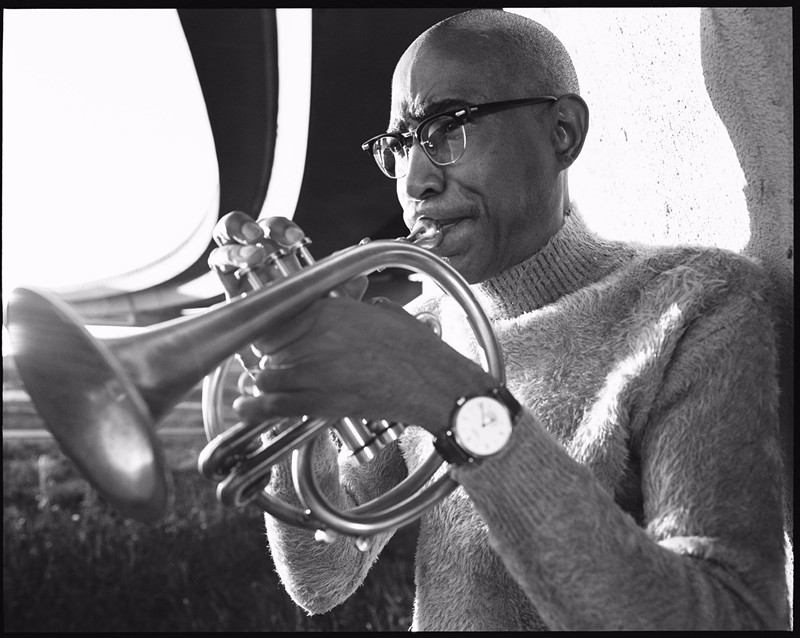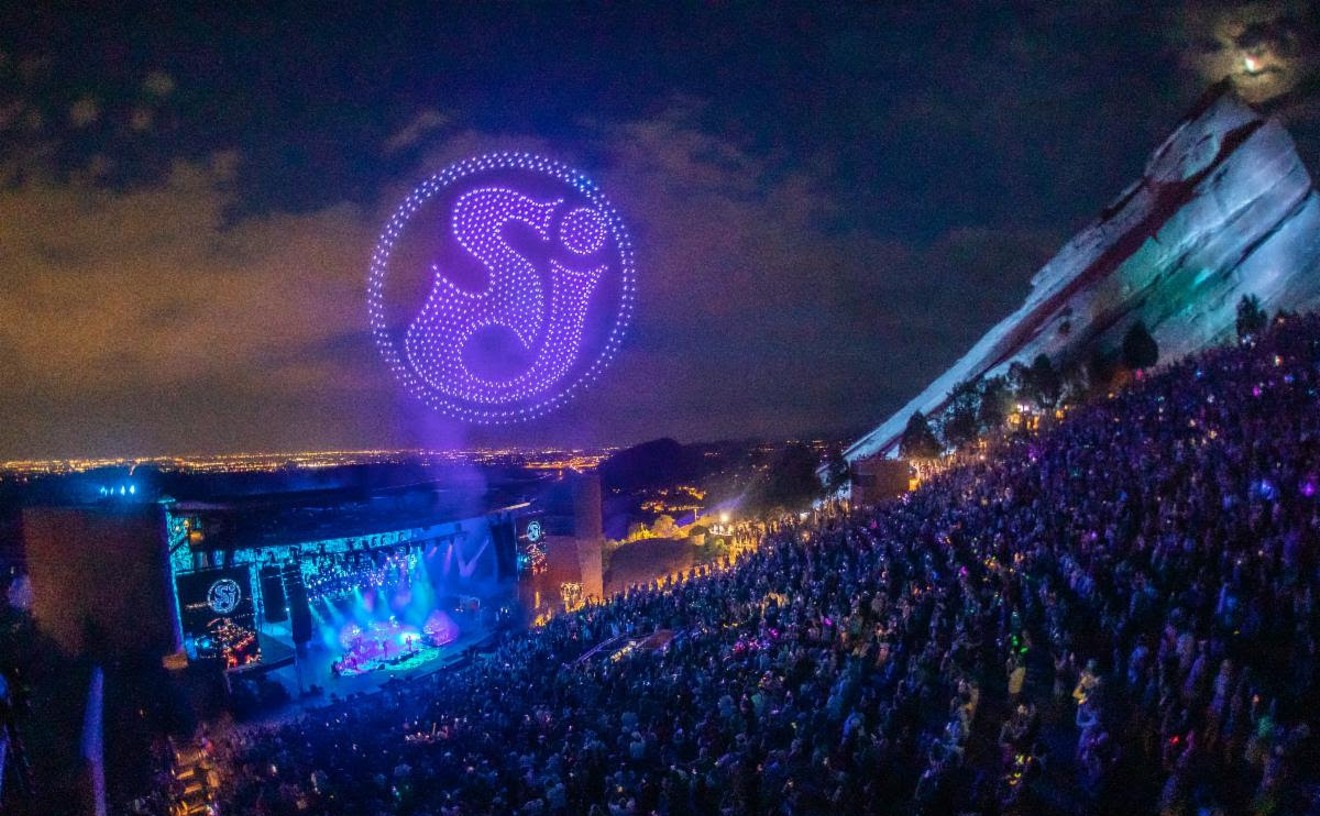When Denver-based cornetist Ron Miles recorded an album last fall, he had no idea it would come out on Blue Note Records, the renowned jazz label with an eight-decade legacy. Miles made the album, most of which was written when his father was near the end of his life, over a weekend in New York with guitarist Bill Frisell, drummer Brian Blade, bassist Thomas Morgan and pianist Jason Moran.
A few months after recording the album, Frisell, who released his last two records on Blue Note, asked Miles if those tracks they made together had a home yet. While there were already a few labels interested, Frisell asked if he could play the collection for Don Was, who took over as president of Blue Note in 2012.
Two days later, Was called Miles, saying he wanted to release the album on Blue Note. Miles says the initial conversation with Was was surreal.
“I never thought in a million years I would be on that label,” Miles says. “He said he’d been listening to it while driving around, and he said everything looked different when he had it on in his car. And he said it was really emotional.”
It wasn’t until a few conversations later that Miles told Was that much of the album had been written over the summer that his father passed away, in 2018, the same year that Was’s father died.
Miles named his Blue Note debut, which drops on October 9, Rainbow Sign, for a few reasons. Rainbows show up in the Book of Revelation when Christ returns and his skin looks like a jasper stone, which has multiple colors. Miles says people have the need to put everyone in a box, including what race they are, “but the idea of a rainbow is that it's this thing that takes us outside of our expectations and our limitations of what we can see.”
The album title also refers to how rainbows are sometimes seen as a passageway from heaven to earth.
“Those who have left us can come back when we see a rainbow and visit us, and we can interact with them through this rainbow,” Miles says. “Also, in modern times, to the parlance of LGBTQ stuff and rainbows and inclusion and the courage to love in the face of adversity. It's all tied together in this.”
The first song Miles penned for Rainbow Sign was “Like Those Who Dream,” a sixteen-minute cut rooted in the blues, which he wrote not long before his father entered hospice.
“The blues has always been a place to help me make sense of some stuff,” Miles says. “When I wrote that first song, I didn't even know [the album] was going to be a journey about writing songs about my dad's transition. But it kind of gave me a sense, like, ‘Okay, I'm starting to figure something out. I don't know what it's going to be, exactly, but we're figuring some stuff out.’ And then the floodgates opened and the songs just came pouring on out after that.”
Miles, a musician-in-residence and previously director of jazz studies at Metropolitan State University, has given master classes on composition. He teaches that the creative process can be mysterious, often evoking feelings more than anything concrete.
“I think that it's not really technical as much as it is emotional,” Miles says. “Like some emotional place where these songs just seem to help you make sense of what you're going through at that time.”
The song “Custodian of the New” is partially based on the notion that the Archangel Gabriel is the custodian of the New Covenant, says Miles. But it's also about his father’s last few years and a six-month period when health issues prevented the musician from gigging. During that time, he and his father worked together as janitors in an office building.
“It was one of the most special times of my life,” Miles says. "We would be the only two people in the office building and just trying to be the best janitors in the world. He said, ‘Make sure the carpet was lined up when you do the vacuum.’ And then [we'd be] leaving and feeling a sense of pride like, ‘Man, that's a job well done.’”
While he composed the gorgeous ballad “Average,” Miles thought about how playing music doesn't make him more special than anyone else.
“That's just what I do to contribute,” he says. “But there’s somebody else cleaning up the building or somebody else being a doctor or nurse or whatever. We're all in this together. We're all trying to make a contribution. And average just means you're not more special than everybody else. Everybody's special."
While Miles had his father, a lifelong mentor who turned him on to jazz, on his mind while writing many of the songs on Rainbow Sign, when composing “The Rumor,” he was thinking about hearing Frisell play his first jazz tune in public — Wes Montgomery’s “Bumpin’ on Sunset” — during a talent show at East High School. Miles, who also went to East, says “The Rumor” imagined Frisell soloing over what the cornetist called "a vibe like Wes in the ’60s."
Miles and Frisell have a long history of recording and performing together, including the two trio albums they did with Blade — 2012’s Quiver and 2014's Circuit Rider. On Miles’s most recent album, 2017’s I Am a Man, he expanded to quintet format with Moran and Morgan, since he started writing more orchestral-type songs with more parts.
He kept that same lineup for Rainbow Sign, noting that if there were a Mount Rushmore with a bassist, drummer, guitarist and pianist, Morgan, Blade, Frisell and Moran would be on it.
“And not just in our current times,” Miles adds. “These are just some of my favorite musicians who ever played their instruments. And so to play with them, I feel like my responsibility is just to give them as much song as possible, because I can give them anything. And they sound good because they're so good. So out of respect for them and their gifts, I feel like my job is to give them as much song as I can. Not as many notes or to write something super long, but just to give them every ounce of song I've got in me to present to them. And then they take it and run with it, because they're master singers, all of them. And they do it so beautifully.”
The playing by each of the musicians on Rainbow Sign, which was co-produced, recorded and mixed by Denver’s Colin Bricker, is stunning and will hold its own in Blue Note’s longstanding canon.
Saxophonist Fred Hess, who died in 2018, taught Miles about ambitious Blue Note albums like Sonny Rollins's A Night at the Village Vanguard, Eric Dolphy’s Out to Lunch and Wayne Shorter’s JuJu. Miles hopes to hand down that legacy to younger musicians from Colorado and show them that they, too, can be represented by a major label like Blue Note.
“This is an example of that,” says the 57-year-old Miles. “I'm not even young and cool. I’m like old and not cool. So [a label could] hear the music...and just be like, 'Yeah, let's roll with that.’”
[
{
"name": "Air - MediumRectangle - Inline Content - Mobile Display Size",
"component": "12017618",
"insertPoint": "2",
"requiredCountToDisplay": "2",
"watchElement": ".fdn-content-body",
"astAdList": [
{
"adType": "rectangle",
"displayTargets": "mobile"
}
]
},{
"name": "Editor Picks",
"component": "17242653",
"insertPoint": "4",
"requiredCountToDisplay": "1",
"watchElement": ".fdn-content-body",
"astAdList": [
{
"adType": "rectangle",
"displayTargets": "desktop|tablet"
},{
"adType": "rectangle",
"displayTargets": "desktop|tablet|mobile"
}
]
},{
"name": "Inline Links",
"component": "18838239",
"insertPoint": "8th",
"startingPoint": 8,
"requiredCountToDisplay": "7",
"maxInsertions": 25
},{
"name": "Air - MediumRectangle - Combo - Inline Content",
"component": "17261320",
"insertPoint": "8th",
"startingPoint": 8,
"requiredCountToDisplay": "7",
"maxInsertions": 25,
"watchElement": ".fdn-content-body",
"astAdList": [
{
"adType": "rectangle",
"displayTargets": "desktop|tablet"
},{
"adType": "rectangle",
"displayTargets": "desktop|tablet|mobile"
}
]
},{
"name": "Inline Links",
"component": "18838239",
"insertPoint": "8th",
"startingPoint": 12,
"requiredCountToDisplay": "11",
"maxInsertions": 25
},{
"name": "Air - Leaderboard Tower - Combo - Inline Content",
"component": "17261321",
"insertPoint": "8th",
"startingPoint": 12,
"requiredCountToDisplay": "11",
"maxInsertions": 25,
"watchElement": ".fdn-content-body",
"astAdList": [
{
"adType": "leaderboardInlineContent",
"displayTargets": "desktop|tablet"
},{
"adType": "tower",
"displayTargets": "mobile"
}
]
}
]












